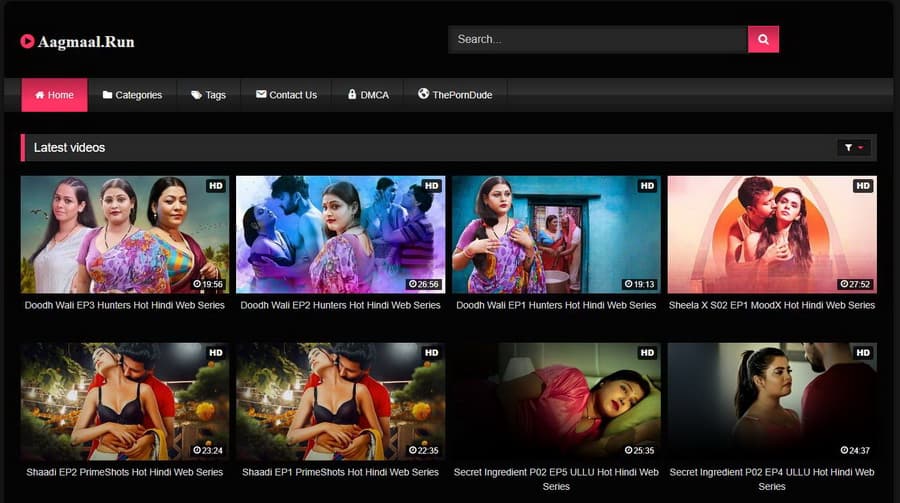Is the digital landscape increasingly mirroring a shadowy underworld, where explicit content thrives under the guise of anonymity and exploitation? The proliferation of websites and platforms offering "Indian uncut web series & desi hot short films," along with the ease with which these materials are shared, points to a deeply concerning trend that demands critical examination and a unified response.
The internet, once heralded as a bastion of information and connection, now presents a complex, often contradictory, face. While it offers unprecedented access to knowledge and facilitates global communication, it simultaneously harbors a dark underbelly where morally ambiguous content flourishes. Websites like those that use the term "aagmaal," and its various iterations ".run," ".pro," ".vip," and ".in" are indicators of a persistent issue. These platforms, which frequently feature content described as "hot web series," "desi uncut short films," and "xxx movies," capitalize on the desire for explicit material, often blurring the lines of consent and ethical boundaries. The very existence of these sites raises critical questions about censorship, free speech, and the societal implications of readily available explicit content. The promotion and availability of such content through platforms, and the subsequent impact on vulnerable populations, is a pressing issue that merits urgent attention from policymakers, tech companies, and the public alike. This includes but is not limited to content labeled with terms such as "bhabhi sex," "tamil xxx," and "ullu hot video," highlighting a wide range of exploitative content available online.
| Website Domain Variations: | aagmaal.run, aagmaal.pro, aagmaal.vip, aagmaal.in |
| Content Focus: | Indian web series, desi short films, adult movies, xxx content. |
| Keywords: | "Hindi hot web series," "desi uncut short films," "Indian uncut web series," "bhabhi sex," "tamil xxx," "ullu hot video." |
| Target Audience: | Primarily individuals seeking explicit adult content. |
| Content Type: | Video content, including web series episodes, short films, and potentially user-generated content. |
| Ethical Concerns: | Exploitation, potential for non-consensual content, promotion of harmful stereotypes, and potential for child exploitation. |
| Legal Status: | Varies depending on the jurisdiction. Many countries have laws prohibiting the distribution of illegal or harmful content. |
| Online Directory Blacklists: | Websites such as these may often be listed on online directories' blacklists, indicating a "suspicious tag" or potential security risks. |
| Commonly Used Tags: | "Aagmaal 18+," "hot web series sex," "Indian hindi uncut web series," "desi mms," "viral videos," "adult." |
| Content Examples: | Content may include graphic depictions of sexual acts, often targeted toward specific demographics (e.g., "mini asian pussy," "fat black cock splitting open tiny white bitches"). |
| Popular Series/Titles: | Examples might include titles such as "Jalebi web series," "Bharti Jha web series," "Sauda webseries," "Bongonaari," "Pehredaar Season 3," and "Rasgulla web series," and "Yes Mam web series." |
| Password Reset Functionality: | Often includes features like "A password reset link will be sent to you by email," suggesting user account management. |
| Reference Link: | National Cybercrime Reporting Portal (ICM) |
The persistent presence of these websites, despite efforts at regulation, highlights the constant cat-and-mouse game between content creators and those tasked with enforcing the law. Often these platforms use sophisticated techniques to evade detection and continue operating, constantly adapting to stay ahead of censorship efforts. The use of terms like "Indian uncut web series," often featuring graphic content, underscores the challenges in protecting vulnerable populations from exploitative material. The evolution of this content is inextricably linked to changing societal attitudes toward sexuality, censorship, and online privacy. The availability and accessibility of such material are frequently facilitated by the ease of content distribution, mirroring larger societal shifts toward the normalization and commercialization of explicit material.
The language used to describe the content, such as "Everyone loves watching mini asian pussy get wrecked" or the explicit descriptions of sexual acts, reveals a deeply troubling objectification and potential for exploitation. This type of content frequently targets specific demographics and can have a corrosive effect on how those groups are viewed and treated in society. The use of such descriptive terms paints a disturbing picture of the type of content being promoted and consumed. These descriptions also frequently fail to adhere to ethical standards or professional conduct guidelines. The creation and dissemination of this content raises important legal and ethical questions about the boundaries of free speech, the role of platforms in moderating content, and the responsibility of individuals to report or reject harmful material. There are often complex considerations surrounding free speech versus the protection of vulnerable individuals. Understanding this is essential to creating a robust response.
The concept of "Share your experience in the comments," found on many of these platforms, directly invites user interaction. This allows the content to propagate more readily, as viewers share their experiences, reviews, and endorsements. This kind of community engagement provides platforms a degree of social proof, but also potentially facilitates the rapid spread of harmful or exploitative content. This can become self-perpetuating cycle of content generation and consumption, in turn, normalising the availability of graphic material.
The phrase "This term indicates whether aagmaal.net has landed on any online directories' blacklists and earned a suspicious tag" directly points to the constant vigilance needed to manage the spread of such content. Online directories and search engines are key gatekeepers in the digital landscape, and their decisions can greatly impact the visibility and accessibility of these websites. Blacklisting is a form of proactive defense against content that may be illegal, harmful, or violate a platform's terms of service. The use of blacklists can be a powerful tool, but their effectiveness depends on constant updates and vigilance. The effectiveness of this strategy has implications for online safety and content moderation in general.
- Mkvcinemaskim Safety Copyright Concerns What You Need To Know
- Filmyfly Latest Movies Reviews Legal Alternatives 2024 Guide
Moreover, the use of "A password reset link will be sent to you by email" suggests an effort to create and manage user accounts, implying a level of sophistication and organization beyond a simple, one-off site. This hints at potential for repeat engagements and user monetization, raising additional ethical and legal considerations. The presence of user accounts and the data they generate add a level of complexity to issues surrounding privacy, data security, and potential misuse of user information. The ability to reset passwords also signifies the integration of user accounts for accessing the content.
The content's association with various "web series" further demonstrates how this type of material is evolving. Web series format content, especially when combined with graphic imagery and explicit acts, tends to draw in a large audience of viewers. The distribution through series, however, raises additional questions about the creators' and distributors' intentions, highlighting how adult content is presented to audiences. The presence of content like "Hindi hot web series" and related types of material show how this model is becoming a mainstream method for the production of adult content.
This content also relies heavily on geographical targeting, making it a key part of the overall structure. The keywords and phrases, particularly "Indian uncut web series," show that the content is targeted toward specific language groups and cultural niches. This further complicates the issue of censorship and regulation, as various content standards and legal regulations apply in different countries. The presence of content, specifically "bhabhi sex," and "tamil xxx" highlights how these platforms take advantage of linguistic and cultural dynamics to target specific demographics, making this a crucial element in the spread of such material.
The references to specific web series and short films, such as "Jalebi web series" and others, underscores the fact that this type of content is becoming more normalized, which is disturbing. This proliferation of titles also speaks to the market's continued evolution and diversity. The existence of these many titles also means that this is a large industry, and the content is in high demand. This demonstrates the importance of vigilance and the need for effective intervention strategies to deal with the spread of this material. As the content continues to evolve, so too do the challenges for regulators and policy makers.
The platforms themselves and the content they host must be assessed. Platforms and websites are constantly evolving and changing. The nature of the material is often explicitly sexual or violent, raising concerns about exploitation, consent, and the impact on viewers, particularly young people and vulnerable individuals. The graphic nature of the content raises further concerns about the potential for normalization and the desensitization of viewers to violent or non-consensual acts. The content's explicit nature also suggests a disregard for ethical and moral considerations.
The legal and ethical implications of hosting and distributing such content are significant. The content may violate laws regarding obscenity, exploitation, and child pornography. The creators and distributors of this content might face legal repercussions. Furthermore, the prevalence of this material poses profound ethical challenges, raising questions of consent, exploitation, and the potential for harm. To this end, the issues connected to these kinds of platforms call for an extensive examination of the legal, ethical, and social dimensions of online behavior. This will need participation and collaboration from governments, the tech sector, and society as a whole to tackle the complex issues that are involved.
- Merkandi Reviews Buyers Wholesalers Insights Is It Legit
- Filmyfly What To Know When You Cant Find Results More


